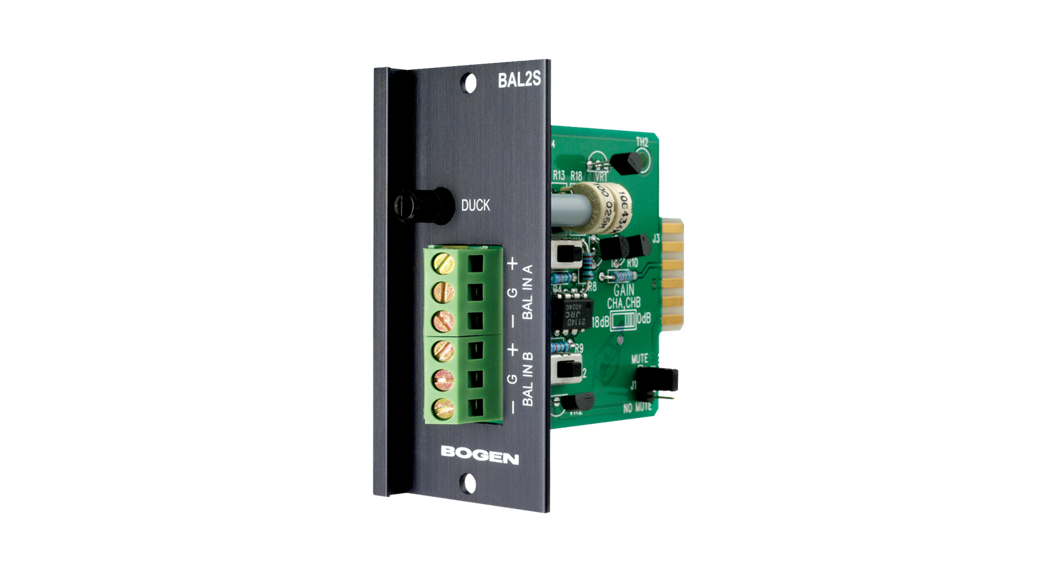
BAL2SBalanced Input Module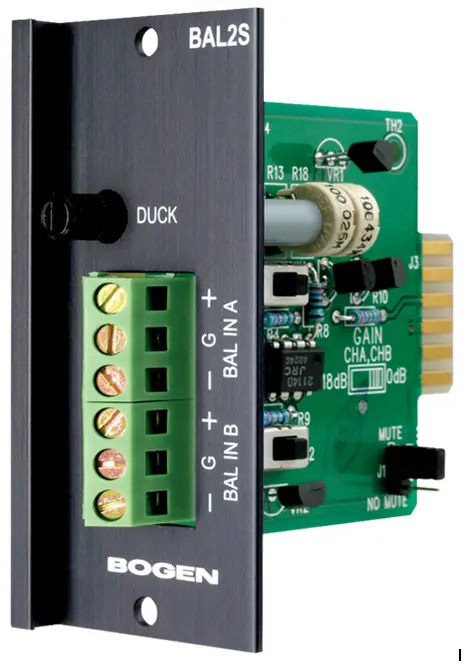

Features
- Balanced high-impedance inputs
- Selectable channel gain (0 dB or 18 dB)
- Variable signal ducking when muted
- Fade back from the mute level
- Can be muted from higher priority modules
Module Installation
- Turn off all power to the unit.
- Make all necessary jumper selections.
- Position module in front of desired module bay opening, making sure that the module is right-side up.
- Slide module onto card guide rails. Make sure that both the top and bottom guides are engaged.
- Push the module into the bay until the faceplate contacts the unit’s chassis.
- Use the two screws included securing the module to the unit.
WARNING: Turn off power to the unit and make all jumper selections before installing the module in the unit.
Features
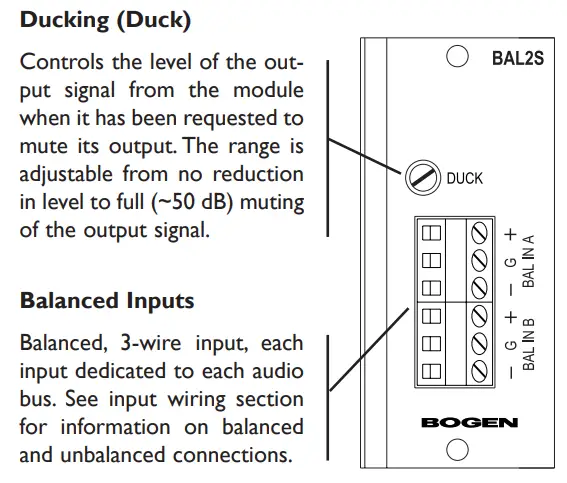

Input Wiring
Balanced ConnectionUse this wiring when the source equipment supplies a balanced, 3-wire output signal.
For either input, connect the shield wire of the source signal to the “G” terminal of the input. If the “+” signal lead of the source can be identified, connect it to the plus “+” terminal of the input. If the source lead polarity cannot be identified, connect either of the hot leads to the plus “+” terminal. Connect the remaining lead to the minus “-” terminal of the input.
Note: If the polarity of the output signal versus the input signal is important, then it may be necessary to reverse input lead connections to correct the “out-of-phase” signal problem.
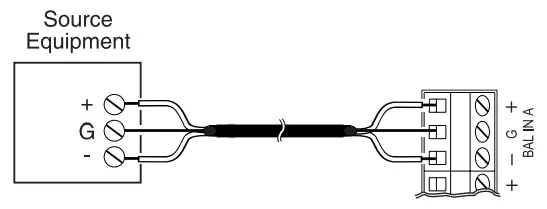  |
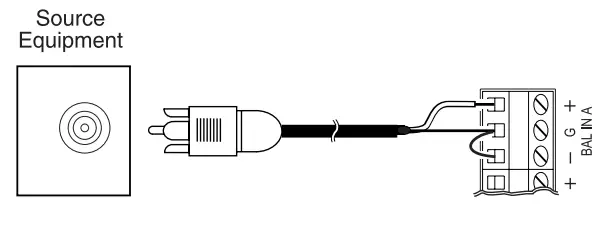  |
Muting
This module can be set so that it is muted by higher priority modules. When that is the case, it is always the lowest priority module.It can also be set so that it never mutes.
Channel Gain
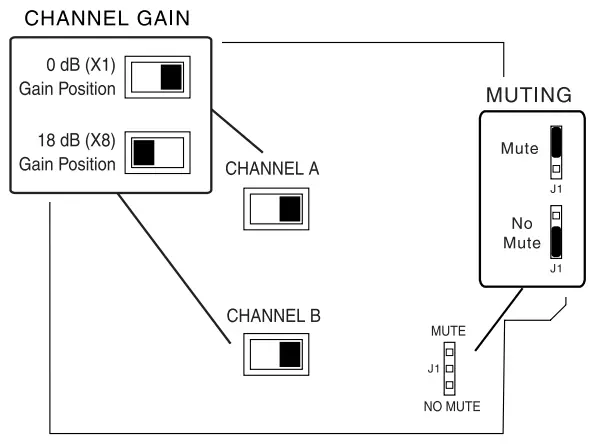

This module provides for channel gains of either 0 dB (X1) of gain or 18 dB (X8) of gain. Separate switches service each channel independently.
Unbalanced ConnectionUse this wiring when the source equipment supplies an unbalanced, 2-wire output signal.
For either input, short the input minus “-” terminals to the input’s ground “G” terminal. Apply the source’s shield to the “G” terminal and the source’s hot lead to the input’s plus “+” terminal.
Block Diagram
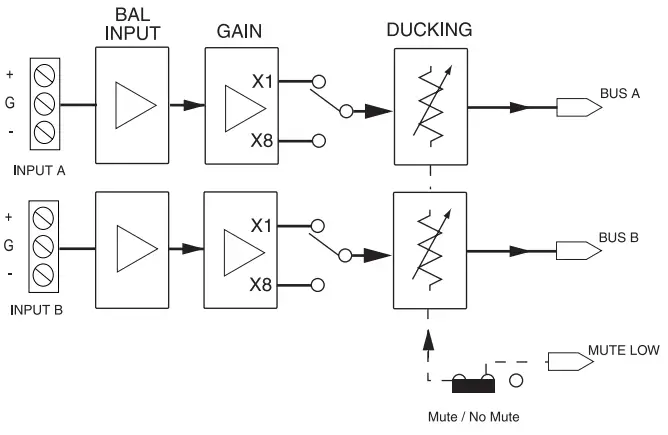




COMMUNICATIONS, INC.www.bogen.com
Printed in Taiwan.0208© 2002 Bogen Communications, Inc.54-2081-01R1Specifications are subject to change without notice.
References
[xyz-ips snippet=”download-snippet”]

